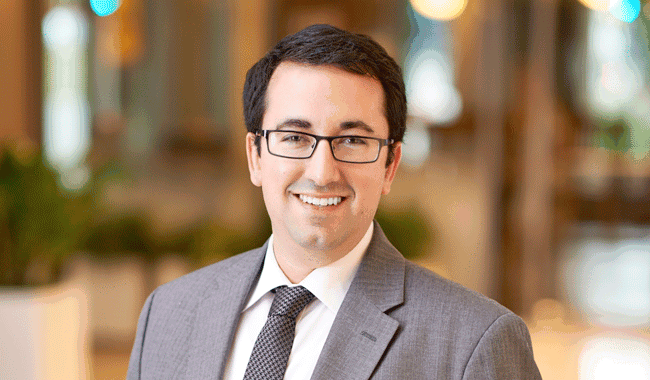
Tell us about your career and background in the healthcare industry.
After completing my undergraduate degree at Texas A&M, I stumbled into a brief career in state and local tax (SALT) at KPMG. When I realized that wasn’t the long-term path for me, I was fortunate to jump over to Texas Children’s Hospital (TCH) and work in their CFO’s office supporting their strategic initiatives— a new women’s pavilion and a new west campus in Katy. After a few years, I realized I needed a more formal introduction to the many quirks of the healthcare industry and decided to pursue an MBA with a healthcare emphasis. During my graduate work at Vanderbilt, a recent alumnus introduced me to ECG. I interned in 2011 and joined ECG full time in 2012. Since then I’ve worked with the Academic Medicine and Strategic Business Advisory divisions before settling into our Provider Financial Services team.
How did you decide to specialize in pediatric healthcare?
The verb “decide” would imply a degree of volition and proactivity that is too generous. I was probably willing to take just about any job to get out of SALT, but I admit the idea of pediatric healthcare appealed to me. The first healthcare book I read was “If Disney Ran Your Hospital,” and my wife and I volunteered at TCH after hours. It was helpful to humanize the indirect impact of my work, which was off campus and largely spreadsheet focused. When I joined ECG and realized we had folks who subspecialized in pediatric healthcare, I was excited about the opportunity to work with leading children’s hospitals across the country.
What trends are you observing in the market for compensation and provider alignment that are specific to pediatrics?
I think the pandemic has forced healthcare organizations to focus more clearly on their provider mix and compensation structure to better recognize the necessary changes to the daily effort and personal risk put forth by their providers. The pandemic amplified numerous existing trends, including provider compensation increasingly tied to value-based measures and less directly to production. We’ve also seen greater adoption of team-based incentives to reward coordinated care and practice at peak licensure, and the expanded roles of advanced practitioners to enhance patient access and help contain costs.
How has pediatric compensation or Professional Service Agreement (PSA) funding changed over the past 5 to 10 years?
Organizations have realized that pure production compensation plans create a culture where every ask of a provider that doesn’t generate WRVUs is perceived as an opportunity cost, eroding some of the citizenship obligations that were taken for granted as part of being on a medical staff. In addition, so much of a provider’s effort cannot be fully captured through WRVUs, such as developing and socializing updated care protocols and pathways, patient and family communication, and care coordination with other providers for complex patients. Identifying better ways to capture the impact of that effort and giving the appropriate recognition to the providers influencing those outcomes is a hard but necessary pivot away from pure production models and the culture that begets.
How are pediatric specialties or provider groups responding to the recent MPFS changes? Are you seeing changes in compensation plans or PSA funding methodologies?
The MPFS changes shouldn’t impact revenues for pediatric specialists this year, but if (or when) they are adopted by commercial payers, the impact could come quickly. Instead, what is being impacted is WRVU generation, with some cognitive specialties expected to see increases of 15% to 20% if their institution adopts the 2021 fee schedule. In cases where WRVUs increase without a commensurate increase in professional revenues, the compensation or PSA funding terms must but adapted and the effective payment per WRVU adjusted, but not so much that the spirit of the change (better recognition of the effort behind E&M codes and enhanced compensation for historically undercompensated specialties) is undermined.
Is there anything you’d like to mention about your work and your experience that we haven’t talked about yet?
For many reasons, the pandemic feels like an inflection point for both the healthcare industry and ECG’s role within it. Everything feels precarious, which is contributing to burnout and existential questions about the future of the industry and the role of providers, administrators, payers, and everyone else trying to enter the market. In moments like this, if you don’t feel a clear sense of purpose, it can be so hard to generate the effort and focus needed to do good work and achieve great outcomes. I would remind us all that the more we can move away from a widget mentality and focus on creating value beyond the sum of the individual parts, the more we can tap into the intrinsic motivation that leads people into this industry in the first place. There is tremendous opportunity for transcendent change in healthcare right now, and I’m excited to be a part of that process.
Clark is a senior member of ECG’s compensation planning team.
Learn more about ECG’s Provider Compensation Planning services.


